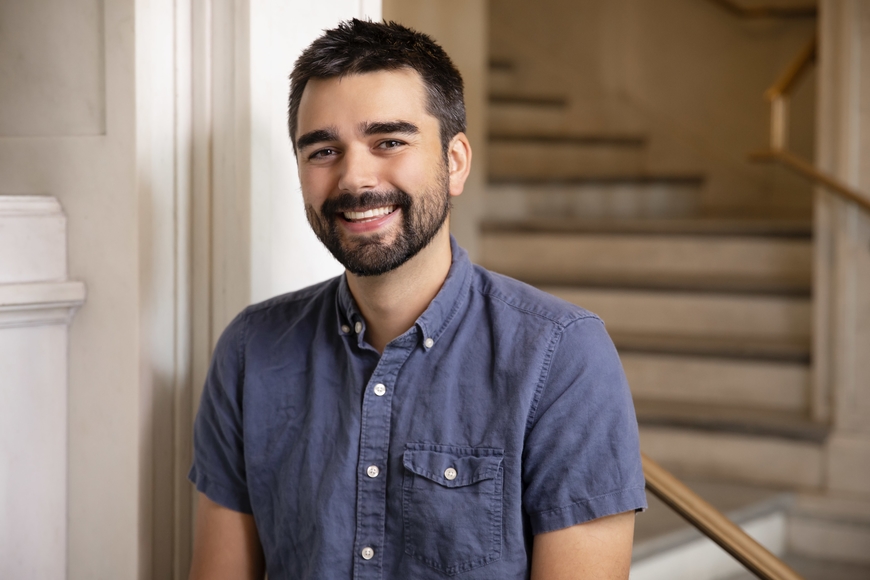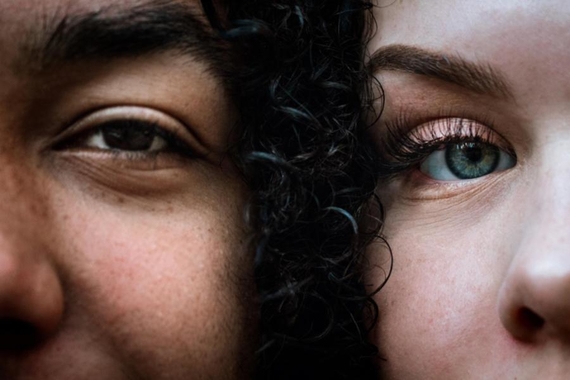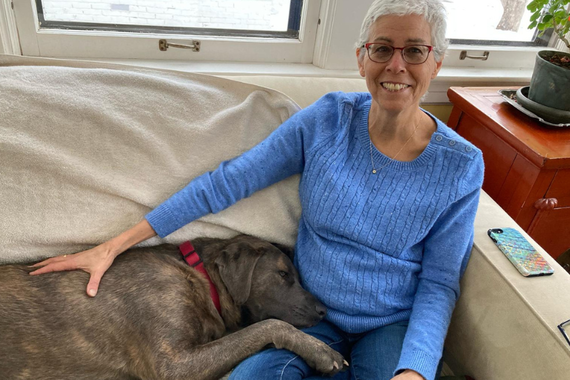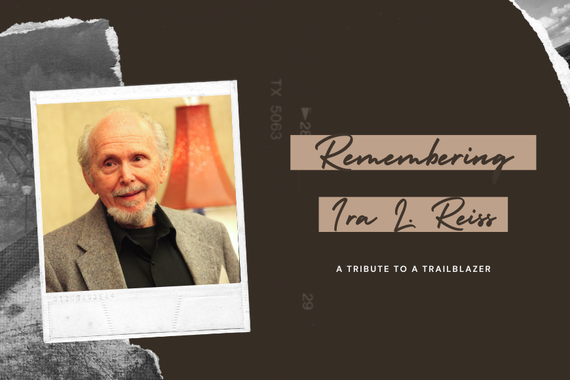Faculty Spotlight: Assistant Professor Tom VanHeuvelen
UMN Sociology is proud to welcome two new exceptional faculty members: Assistant Professor Tom VanHeuvelen and Assistant Professor Jane VanHeuvelen. Both hail from the University of Illinois at Urbana-Champaign and are excited to put their powerful scholarship to work and make a positive difference in the lives of our students.
In this month's Faculty Spotlight we ask Tom a few questions about his background, his research, and the best part of Minneapolis (so far).
What were you up to before coming to UMN Sociology?
I was an assistant professor in the department of sociology at the University of Illinois at Urbana-Champaign.
What is your educational background?
I received a bachelor’s degree in Comparative Sociology and English Literature at the University of Puget Sound in Tacoma, WA. I received my PhD in Sociology from Indiana University and a master’s degree in Applied Statistics along the way.
What inspired you to go into sociology?
My undergraduate professors. I was lucky enough to get roped into two research projects. One focused on the social-psychological consequences of mass layoffs in a large manufacturing firm. Another studied the implementation of long-term housing for the homeless in Pierce County, WA. Through my (minor) involvement with these projects, I was able to see how sociological research could expose those social systems and organizational processes—often hidden from everyday life—that help structure the social world. It was invigorating.
What are your research interests?
I am interested in social stratification and study the causes and consequences of economic inequality. Generally, I assess how inequality responds to changes in social policies, labor market institutions, and economic development. I am especially interested in comparative studies of inequality, both across countries and local labor markets in the United States.
What projects are you currently working on?
This summer I have been working on three projects.
1. When Inequality Declines (with Kevin Leicht): It is widely assumed that reducing inequality is a social good. Yet underneath accelerating overall inequality in recent decades, many local labor markets in the US have experienced declining inequality. What do these hidden places of inequality decline look like? What has caused these declines, and what have been the social consequences? Understanding these trends can help develop a more empirically informed approach to the goal of reducing inequality.
2. Union Decline and Poverty (with Dave Brady): It is well established that labor unions have been an important institutional force that reduced aggregate working poverty levels. Yet many explanations for poverty refer to qualities, characteristics, and dispositions that exist inside the individual. We therefore use longitudinal data to assess the influence of state-level unionization on individual poverty trajectories, and how the decline of labor unions has affected the life course dynamics of poverty experiences.
3. Wage Inequality Among College Educated Workers (with Natasha Quadlin): Major selection is frequently targeted as a solution to racial and gender wage differences occurring among college educated workers—e.g. the gender wage gap would shrink if only more women majored in computer science. How reasonable is this proposed solution? We assess wage differences across individuals based on gender and racial identity within and between college majors. We frequently find as much, or more, wage differences across gender and racial groups inside majors than exist between majors. These trends are particularly pronounced among higher-wage workers.
What courses will you be teaching in this new role? What are your favorite topics to teach? Why?
In the fall, I will be teaching two writing intensive undergraduate courses: Organizations and Society and Cities and Social Change. In the spring, I will be teaching Introduction to Sociology and a graduate level methods course, Advanced Social Statistics. I hope they learn about the needs and research goals of the graduate students this year to base proposals for additional quantitative methods courses in the following years.
I really enjoy teaching courses on social inequality. Social scientists across disciplines and methodological orientations have produced extraordinary work in the last decade, which makes for an exciting introduction to the core of stratification research for undergraduate students.
At the graduate level, I love teaching courses on the Workflow of Data Analysis and Reproducible Results. Developing the tools to efficiently conduct quantitative research is the closest thing to a spiritual awakening that I have seen in a methods course.
What is your favorite thing about Minneapolis (so far)?
The natural areas, without question. I marvel that the city has successfully maintained a forested conduit through the city’s center. The nature preserves around town are stunning. Unrelatedly, I’ve never seen a group of people so dedicated to summer ice cream.
Who (furry or human) lives in Minneapolis with you?
Humans only at the moment, although a vocal dog coalition in the family has coalesced. I live with my spouse, Jane, and my two children. Freddie is two and Magda is four. Freddie loves basketball, chicken nuggets, and ketchup. Magda loves fairies, piglets, and gum.
What do you like to do in your free time?
At the moment, this is more of an aspirational question. I have been able to maintain my interests in cooking, gardening (both flowers and vegetables), and minor outdoor adventures during this era of the tenure track and small child parenthood. I suppose that as a family we have most enjoyed visiting the zoo and Choo Choo Bob’s this summer.



